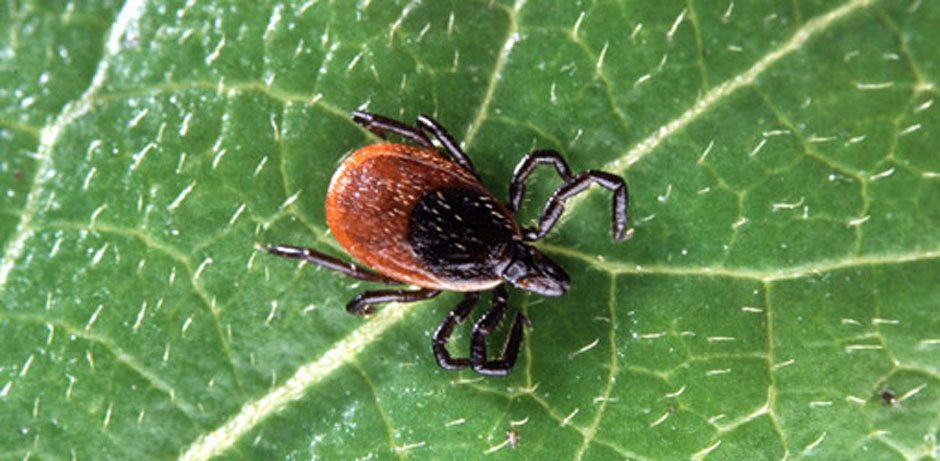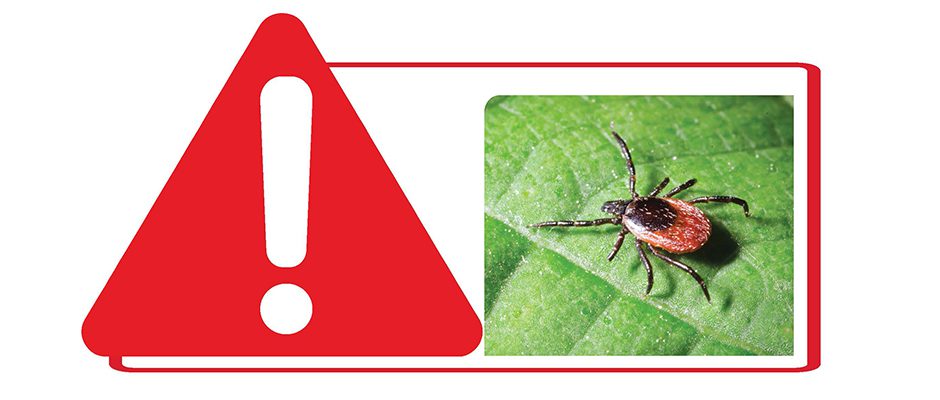
New York is one of 13 states that account for virtually all reported cases of Lyme disease. In fact, the Hudson Valley, including the Capital Region, has among the highest incidence of Lyme disease in the nation.
According to the New York State Department of Health, more than 7,500 cases of Lyme were reported in the state in 2013.
Deer ticks, which live in shady, moist areas, at ground level, range in size from a poppy seed to a small pea. They generally hang out alone, waiting for a warm-blooded creature – like a mouse, deer, or human – to brush against them, so they can attach themselves.
If they remain attached for at least 36 hours, symptoms may appear within another three-30 days (average 10). Early symptoms include chills and fever, headache, stiff neck, muscle and joint pain, heart palpitations, or swollen glands.
Untreated, severe cases may involve strong headaches, painful arthritis, swelling of the joints and problems with the heart and central nervous systems.
To prevent infection, create a “tick-free zone” in your yard by keeping the lawn mowed and removing brush and weeds. In wooded areas, wear light-colored clothing, so a tick stands out, and tuck your shirt into pants and pants into socks or boots. Inspect yourself every couple hours.
Use insect repellents carefully, especially with children. There are many different products on the market, with varying ingredients, concentrations and effectiveness. The most effective contain DEET, picaridin, or oil of lemon eucalyptus.
Inside, do a full-body tick check. If you spot one, grasp it with a tweezer near the mouth area and pull it away from the skin. Do NOT use folk remedies, such as petroleum jelly or lighted matches or cigarettes. Disinfect the site with soap and water.
If there is an infection, a red rash or bull’s-eye, about two to three inches in diameter, usually appears at the site. Doctors can prescribe oral antibiotics that cure most cases within 10 to 28 days.
Remember, you don’t have to be in the deepest woods to pick up a tick. Anyone outdoors in our region in the summer, whether you are a hiker, gardener, soccer player, golfer, or just someone who likes to stroll barefoot in the grass, can be a target. If you, your kids or pets are spending time outside, you should conduct daily tick checks.





